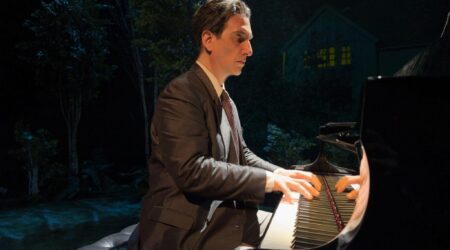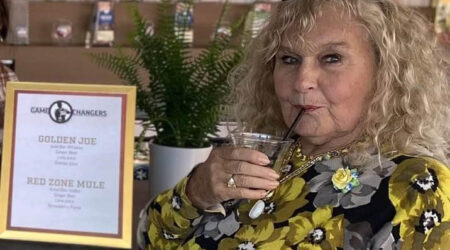The Art of Being Alone
During the slightly self-destructive period of my youth that I’ve come to fondly dub “The Dark Ages,” I spent the majority of the school lunch hour in the library. What’s embarrassing about this – beyond the obvious geeky stigma associated with anything having to do with the library – is that I didn’t have any […]

During the slightly self-destructive period of my youth that I’ve come to fondly dub “The Dark Ages,” I spent the majority of the school lunch hour in the library. What’s embarrassing about this – beyond the obvious geeky stigma associated with anything having to do with the library – is that I didn’t have any kind of academic excuse to be there in the first place. I wasn’t doing homework (no, I did this after school at my then best friend, Luke’s house while heating up frozen pizza bagels and listening to Pink Floyd’s epic Dark Side of the Moon album on repeat), I wasn’t doing any extra credit work like some kind of masochist, and I definitely wasn’t assisting the librarian in any way (though this was my favorite excuse to make – or at least it would’ve been if people had noticed enough to ask). The real reason I was there, sitting on the floor in the corner between the fiction and non-fiction shelves, was because I really had nowhere else to be, and no one to be in that nowhere place with. And the librarian felt so bad for me that she turned a blind eye whenever I’d sneak out of the mandatory lunch period in the yard to be there (she even frequently left a stack of books for me that she thought I’d like).
It was during one of these teen tragedy afternoons that I discovered Henry Rollins’s Solipsist for the first time. It was Luke’s older brother, Kelly (who I may or may not have been kind of in love with – kind of) who first introduced me to Henry Rollins and the iconic punk rock band, Black Flag, and consequently Kelly’s bookshelf that I swiped Solipsist from, as some kind of twisted and terribly clichéd way of getting closer to him (but I didn’t like him…obviously). I can’t remember what I was expecting from it at the time – some rageaholic but lyrical meditations, or perhaps a simple memoir-esque collection of journal entries – but considering that I didn’t have a clue what the word solipsist even meant, it couldn’t have been accurate at all. What I ended up getting was me, thirteen years old and internally unraveling, printed and bound and shelved and read.
Rollins’s book began as a months-long experiment in full submission to the idea of the self as the be-all end-all from which everything else in the world decants and resonates, the idea of solipsism. The final product is a refreshing, choppily chaptered, and admirably uncensored look not into loneliness, but into the state of being alone. It’s unclear whether the book is narrated by a single person, or if every section has its own first-person narrator; either way, the character(s) is(are) unnamed and never described, so that readers themselves are able to experience a level of detachment and access each character’s thoughts without the inconvenience of the character’s persona to color their conclusions. Rollins’s prose style is bold and energetic, full of tension and sharp, almost painful, imagery. He delves into the complicated topics of otherness, isolation, self-hate, and hatred of others with shameless confidence, and what emerges is a raw, gritty, and truthful account of descent.
Thirteen-year-old me, cross-legged in the library and snacking on a zip-lock bag of Cocoa Puffs alone, convinced that no one would ever understand because no one else could have possibly experienced or could currently be experiencing anything she was experiencing, instantly related and heaved a sigh of relief. My feelings are valid, I remember thinking. They’re real. That acknowledgement alone was consoling enough.
I revisited Solipsist recently, found it in a box of Dark Ages relics and figured it was time to get to know the person I used to be so I can better understand the person I’ve become and am becoming. The interesting thing about it – perhaps the most important thing I have realized about it – is that it seemed to have grown with me. What Rollins did so brilliantly all those years ago that I couldn’t see, couldn’t grow enough to pick up on until now, was invoke a tone of subtle self-parody. You are alone and no one understands; everyone hates you and you hate everyone, is what he says at first – until, with closer inspection you realize at the end of the read that the speaker or speakers don’t want to be alone at all, have only glorified their isolation out of a maladjusted need for self-preservation, that the loneliness is just a masked fear of disappointment and is entirely self-imposed. Solipsist, really, is a testament against itself, a road map from Point A to Point B, and for years I had missed the right exit.
That lonely girl in the library, this happy young woman sitting on the recliner in her room, content because she is writing, because she is doing what she loves – neither are quite as important as the person that is trying, at this second, to emerge. Solipsist has come to mark crucial stages in my development, and as a book makes a turn in a mere set of printed and bound words; I should probably do the same. We should probably do the same.
By Jayne Wilson
Jayne Wilson writes fiction about the likes of decapitated gnomes, compulsive hoarders, and sardonic old men. She laughs pathetically at her own jokes and is generally an impish mess. She graduated from the University of California, Davis in 2010 with a degree in English-Creative Writing.





